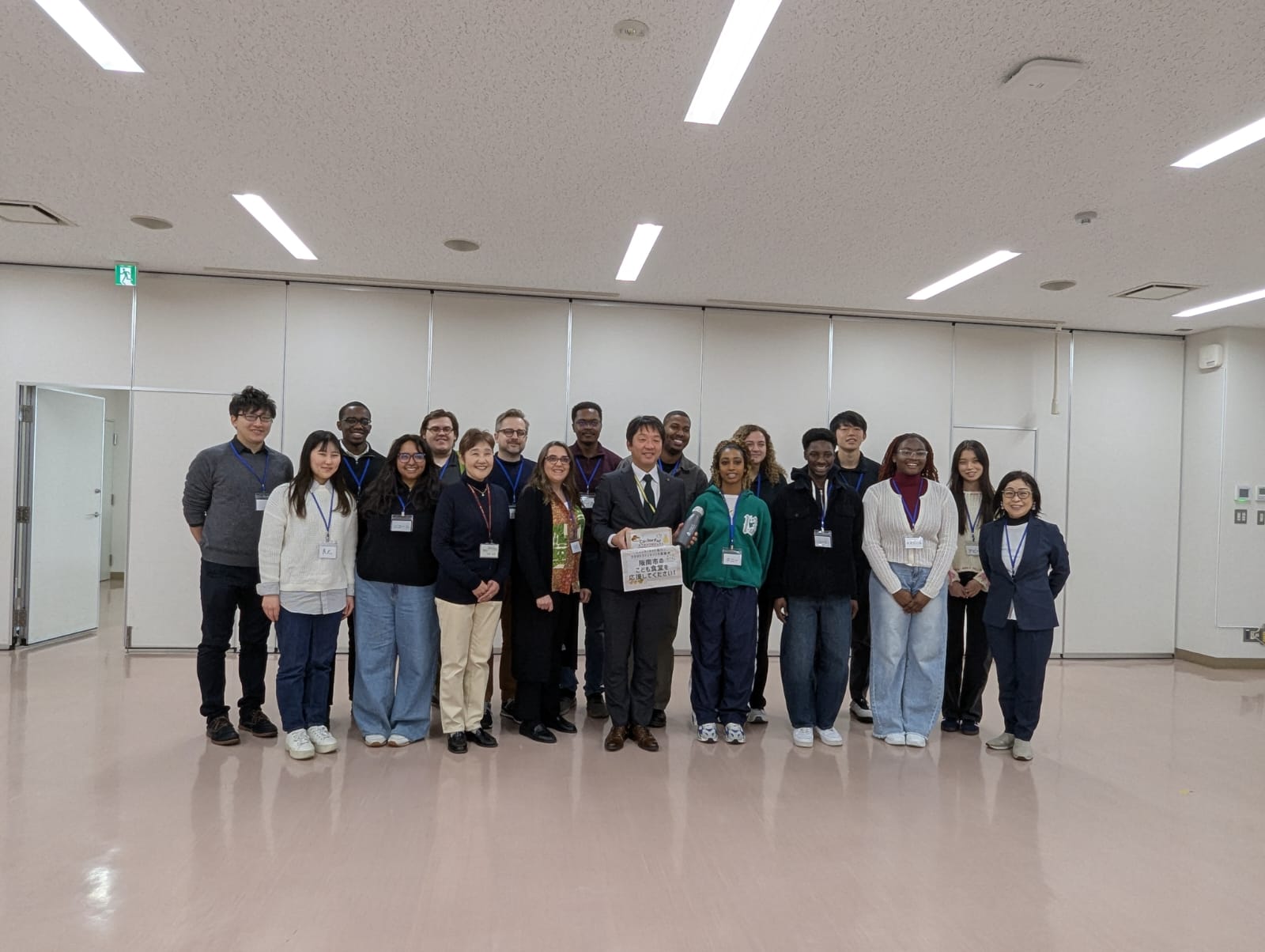This spring, Andrews’s School of Business Administration (SBA) students took social innovation to a whole new level—literally across the world. Partnering with Osaka Metropolitan University, the Social Innovation class embarked on a transformative journey to Japan. They worked on a joint project focused on innovation in business.
The experience wasn’t just about learning; it was about doing.
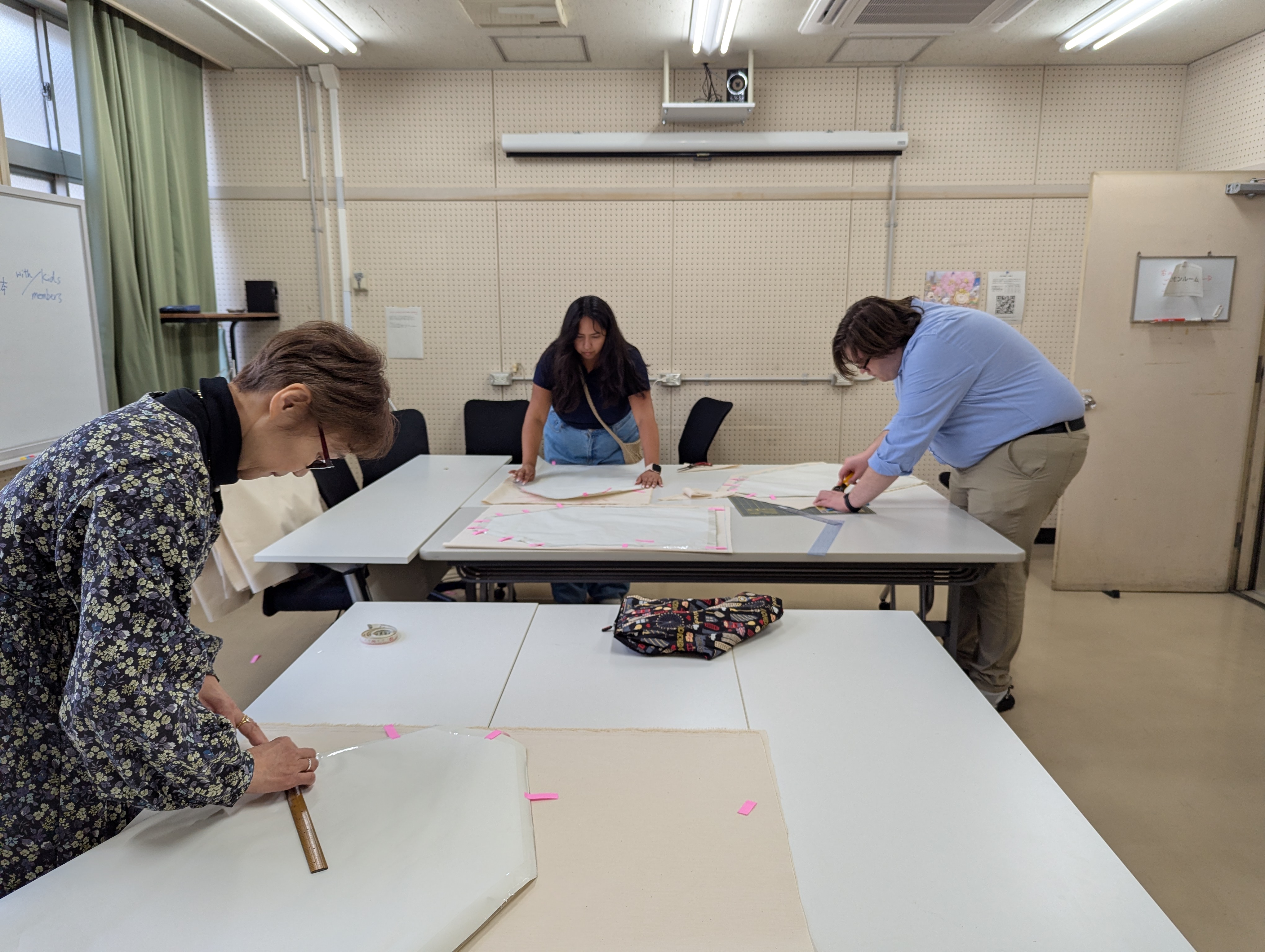
Immersing in Japan
As part of the collaboration, Andrews students immersed themselves in the rural community of Hannan City, Japan, where they gained hands-on experience while learning about the deeper issues facing similar, smaller communities—most notably, the effect of the migration of young people to larger cities, leaving behind an aging population. Through their project, the students were able to bring intergenerational groups together, using sustainability as a bridge to foster dialogue, connection, and action.
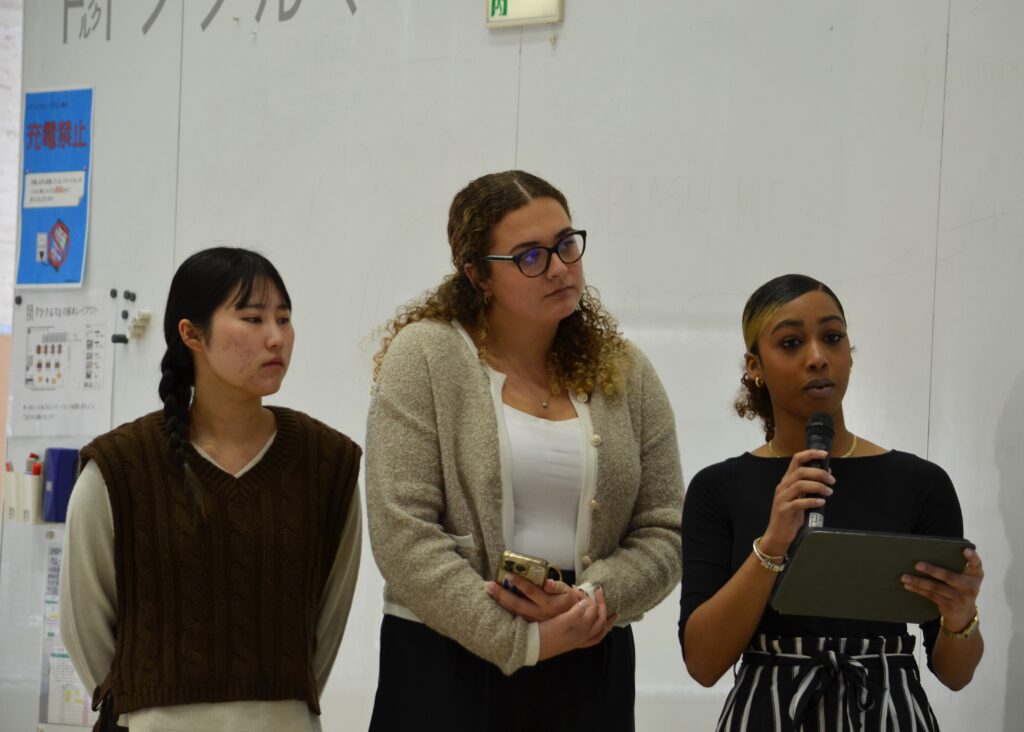
The course emphasized the use of local sustainable supply chains. This model demonstrates how responsibly sourcing local materials, reducing emissions, promoting ethical labor, and ensuring transparency can be done in small communities. These goals were not only taught but lived out in the project work. In fact, the team’s efforts were so impactful, they were selected to be showcased at the prestigious Osaka Expo 2025.
Classroom Work
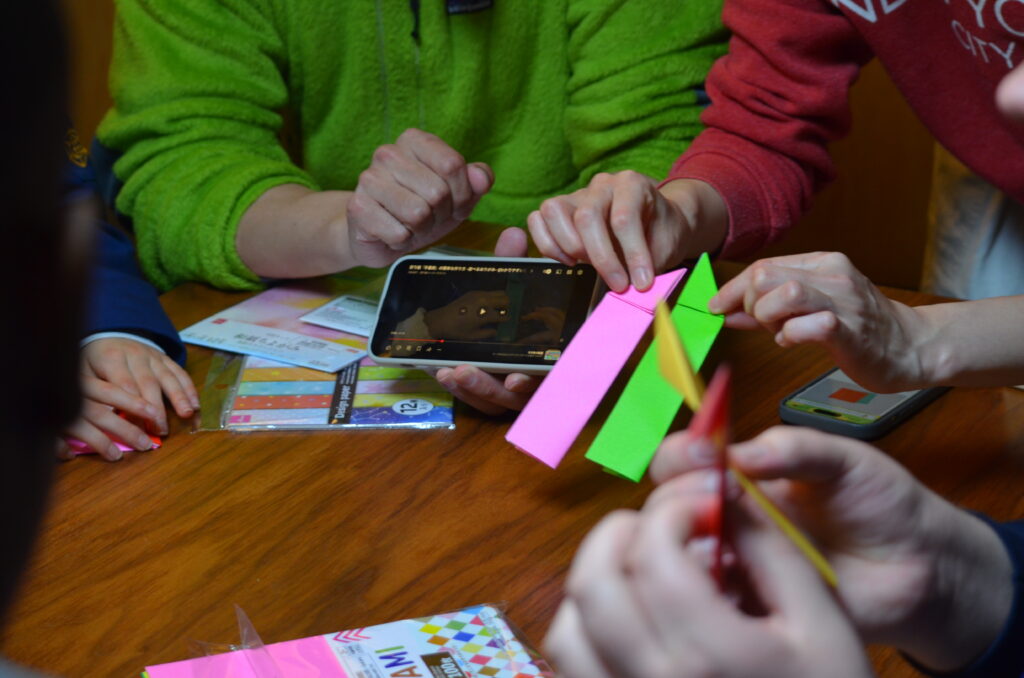
Beyond the classroom and project work, students also discovered the beauty of cross-cultural communication. They gathered with the local community for an international exchange at two children’s cafes. Encouraged by the local social welfare councils, volunteers around Hanan City organize diner cafes. Designed to create cross-generational links with the goal of exchanging social respect, heritage, and strengthening ties to the town. These cafes aim to create a more sustainable community. Though language was an initial barrier, the team found creative ways to connect such as using Google Translate and hand signs to communicate with children and the adults. Soon, everyone was bonding over origami and vegetarian ramen.
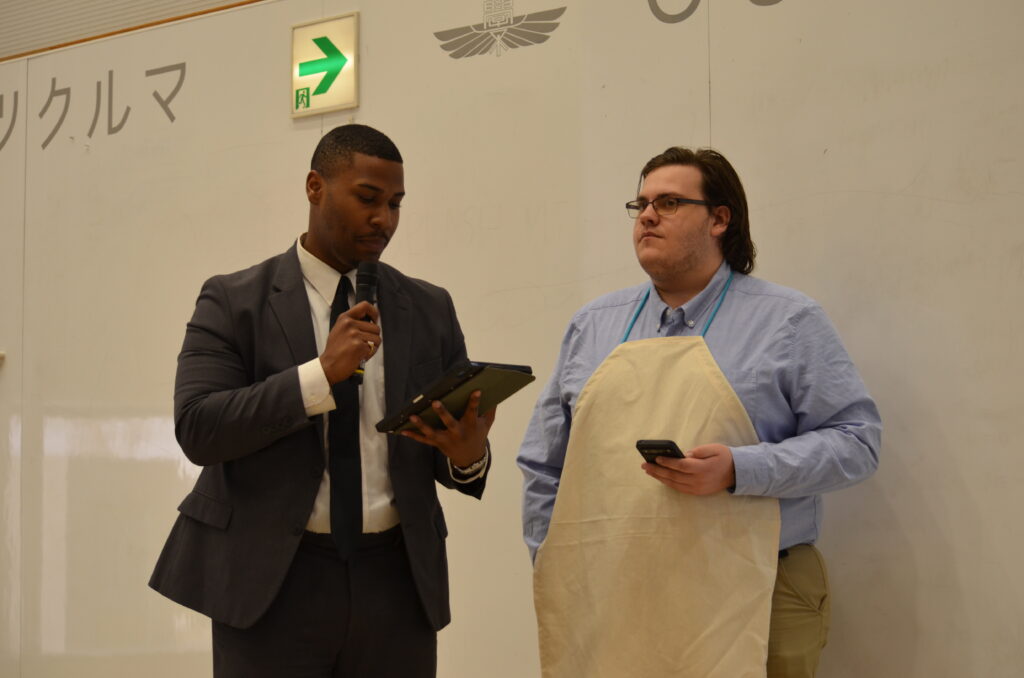
At one cafe, the team organized a sewing party. Children sewed aprons using material made from wood pulp harvested from the forest underbrush waste found outside their town. The pulp fibers are turned into thread. Then turned into fabric made by a cloth manufacturer in Hannan City. The aprons were donated to the cafes to show appreciation to the volunteers for their work. This was an example of how one community was using a minimal sustainable supply chain to improve their community.
Whether navigating language barriers, sight-seeing in Kyoto, or sharing laughs at Universal Studios Japan, students grew in more ways than one. The trip became more than a class—it was a journey of friendship, cultural exchange, and purpose-driven learning.
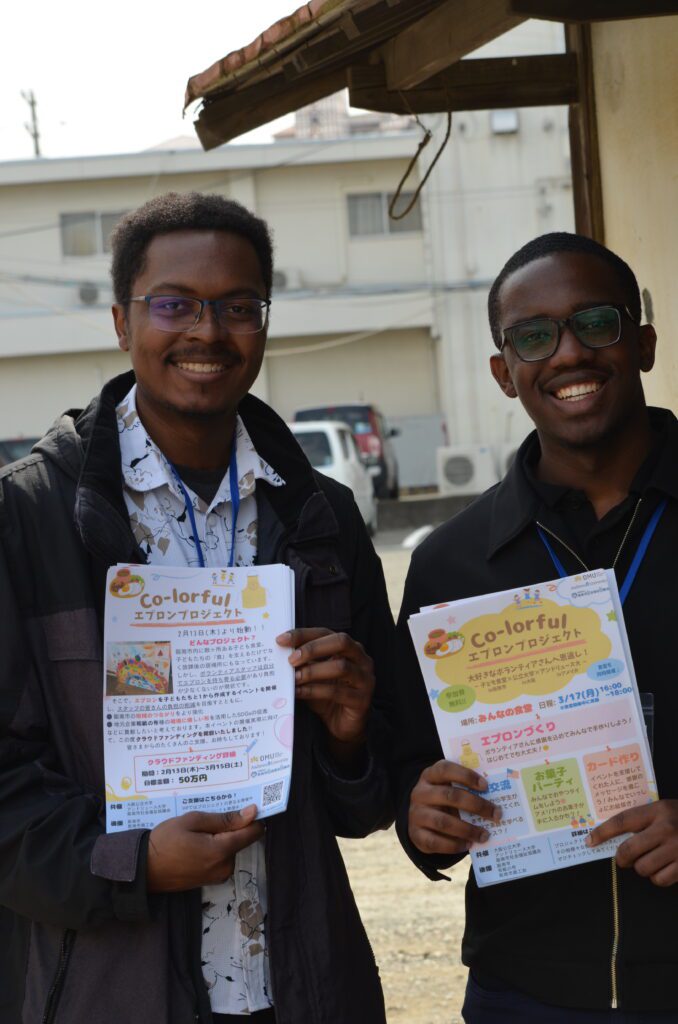
Global Status
In partnership with Osaka Metropolitan University and aligned with the UN’s sustainability goals, this initiative marks the first time a class from the Andrews School of Business Administration implemented a sustainability project in Japan. It’s proof that when students think globally, act locally, and build relationships across borders, real change is possible.

